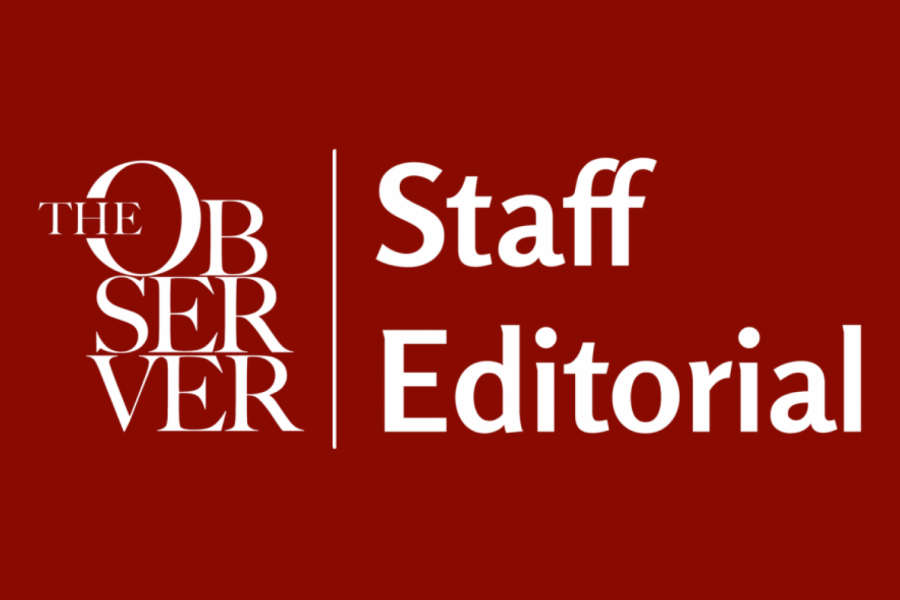Fordham Has Had 32 White Male Presidents, But The Next Shouldn’t Be
November 12, 2021
CORRECTION: A previous version of this article stated that in 2015, Eva Badowska was appointed to the Dean of the Graduate School of Arts and Sciences (GSAS) and neglected to acknowledge that in 2020, Tyler Stovall was appointed to the position of Dean of GSAS. As of Dec. 2, 2021, this article has been updated to reflect the fact that as of 2019, Badowska has been serving as the Dean of the Faculty of Arts and Sciences, and Stovall has been serving as the Dean of GSAS.
With the resignation of current Fordham University President Rev. Joseph M. McShane, S.J., the presidential transition has begun with the assembly of a search committee consisting of trustees, faculty, staff and current students. Fordham has also been hosting virtual town halls to gather the community’s input. The committee will present its front-running candidates to the Board of Trustees in early 2022 and announce its final choice in the spring of 2022. Despite this show of inclusivity, students are concerned that Fordham’s next president will not embody the community’s values nor identities.
Fordham has many policies that differ from the values of the student body, like limiting overnight guests based on sex, unlike other Jesuit universities. The 2020-21 academic year was the first with gender-inclusive housing options at Lincoln Center, only provided after five years of advocacy by students.
Fordham’s administration has previously ignored petitions by students demanding more concrete actions to address racial inequity, such as to cut university ties with its food service Aramark and unpack Public Safety’s involvement with the NYPD. It is important for our administration to listen to the student body when petitioned.
If the university wants to progress along with the students they admit, they should hire a president who represents the student population.
Fordham’s next president should be someone who will advocate for students and accommodate largely progressive interests. Since the university has repeatedly expressed interest in addressing institutional racism, electing a person of color will be proof of this commitment.
Fordham’s undergraduate population is 65% female, but there has yet to be a female president. If elected, the potential female president would not be a Jesuit priest, as priests must be male. However, one could still practice Jesuit values. To be a person for others is a central Fordham tenet, regardless of gender.
Over the last decade, Fordham has sought to diversify its administration, hiring women, people of color and others who identify as members of minority groups. One of the biggest changes occurred in 2015 when Fordham hired four new deans, three of whom were women: Eva Badowska at the Graduate School of Arts and Sciences (GSAS), who is now the dean of Faculty of Arts and Sciences, Maura Mast at Fordham College at Rose Hill, and Virginia Roach at the Graduate School of Education, who stepped down in 2020 to pursue other opportunities. Mica McKnight became the Fordham College at Lincoln Center assistant dean for sophomores in 2017 and served in that position until just last month. Laura Auricchio followed suit, becoming the FCLC dean in 2019. Tracyann Williams was appointed to the recently added position of assistant dean for Student Support and Success.
Since then, Fordham leaders have continued to diversify the administration with special attention to race, particularly after the launch of anti-racism efforts in summer of 2020. In the summer of 2020, Fordham hired Tyler Stovall as the new dean of GSAS, three months ago, José Luis Alvarado became the dean at the Graduate School of Education and Jenifer Campbell was promoted to dean of students at Lincoln Center.
Efforts to include more people of color in upper management should extend to the selection of Fordham’s next president. Doing so would further diversify the management of this institution and better reflect the makeup of the current student body.
If the university wants to progress along with the students they admit, they should hire a president who represents the student population. Fordham students have a voice that deserves to be heard by the president, and a president who is female and a person of color will be more likely to push those progressive social policies forward.













Susan S. Harmon • Dec 2, 2021 at 5:57 pm
Tyler Stovall would be a good candidate for President.
Albi • Nov 14, 2021 at 10:36 pm
Doesn’t the Observer lack any black student leaders? Having white women doesn’t make much progressive in an age where oppression doesn’t really impact white women. Having trans representation, religious/ethnic diversity, and POC representation is really really important for the school. Yes for the admin, but also for student voices, like this majority white newspaper.